Welcome to another Tinto Talks, where we give out top-secret information about our upcoming unannounced game with the code name Project Caesar. This time we will touch a little bit on the aspect of religion in this game.
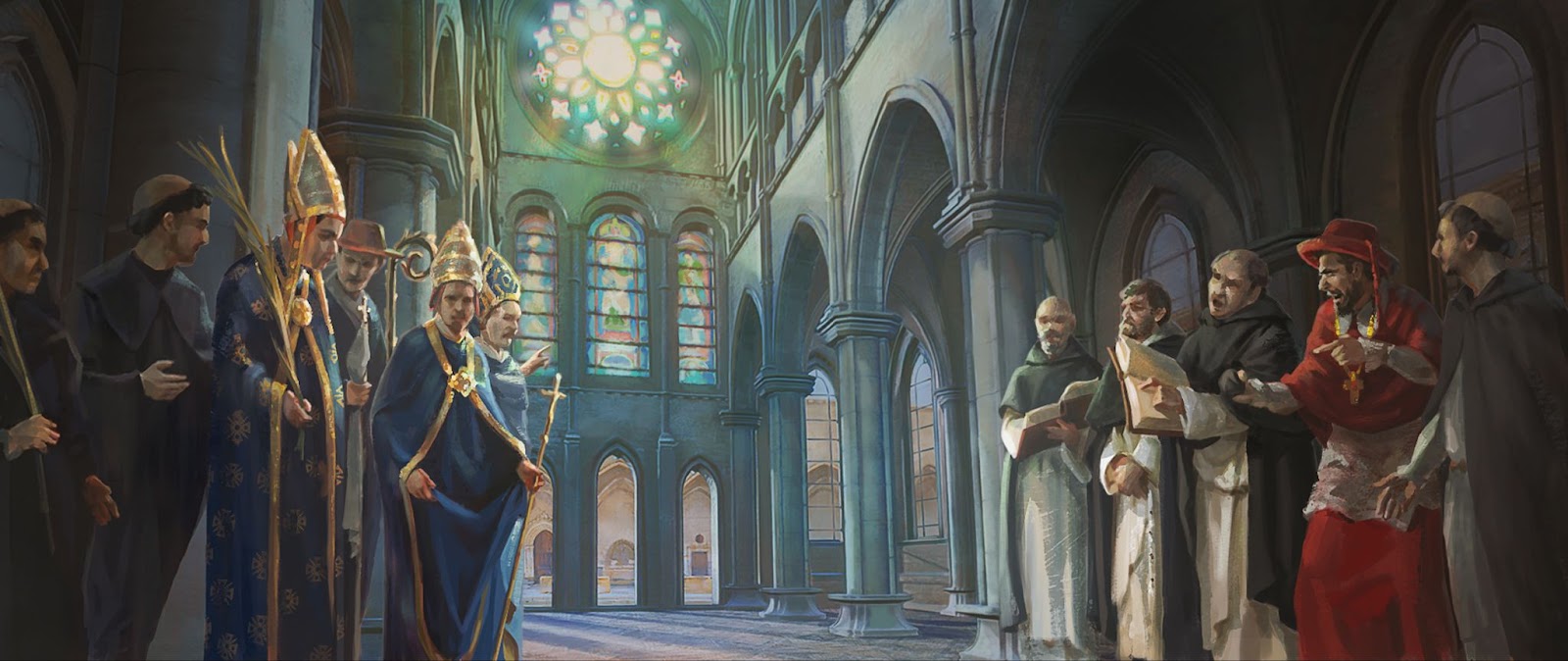
Every country, pop, or character has a religion they adhere to. This impacts their relationship with the place they currently are, and their relationship with others in the world.
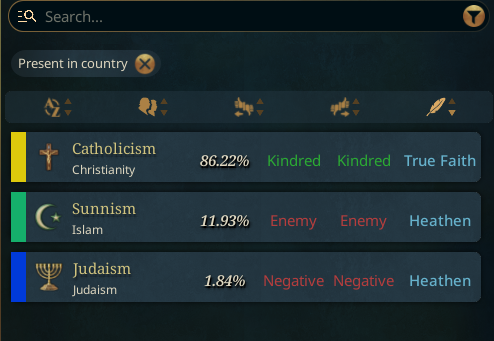
This is the religious setup of Aragon in 1337.
Every religion in Project Caesar belongs to a Religion Group, such as Christianity or Paganism. Fellow religions in the same group consider each other to be merely Heretic, whereas religions in different groups condemn each other as Heathen.
Every religion has a specific view of other religions as well, that ranges from Kindred to Enemy, which impacts relations between countries of different faiths, and how populations of another faith view your country.
Each country also has their own tolerance of their true faith, of heretics, and of heathens, which impacts how happy or angry the population will be depending on which country they belong to.
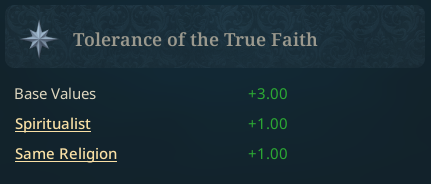
The Same Religion here, is from the law relating to valid heirs.
The religious unity of your country has a really large impact on the satisfaction of your Clergy Estate.
Important to know is that in Project Caesar, you just do not send missionaries to your locations and eventually they have changed religion. Here conversion is a slower process, which relies on government activities and infrastructure.
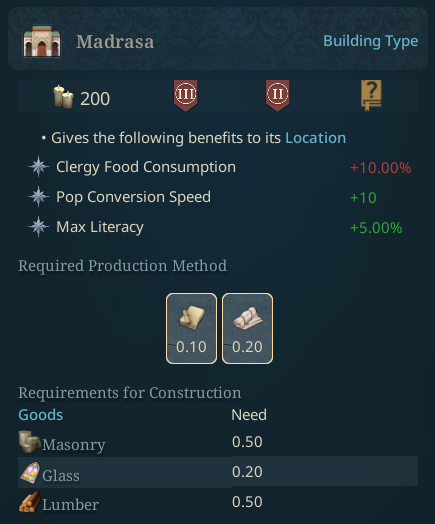
A unique building for Muslim countries that has a tiny impact on conversion.
Each religion belongs to a group, which impacts which tolerance is applied and how religions interact with each other. Religions in the same group are viewed as heretics, but those of another group as heathens.
The groups we currently have are, but that may change as we continue to develop the game.
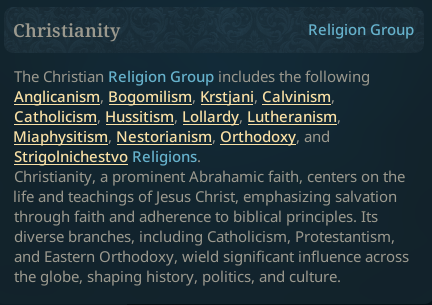
The current Christian religions. Take into account that they are very much WIP!
In some games we have made there have not been any major differences between religions, merely being different modifiers, and while some religions in Project Caesar are still only a few modifiers, many will have mechanics. Right now, we have made unique mechanics for Catholicism, Orthodoxy, Miaphysitism, the various Protestants, Muslims, Buddhists, Shinto, Nahuatl, Hinduism & the Inti religion. Each of these will get their own unique later development diary.
Now every religion will still have some modifiers that describe them, in many cases it is things that enable or disable certain mechanics. Some examples include the fact that countries with Jain as their state religion can not start wars without a casus belli, and that Calvinist countries will never reroll the dice in a battle, as everything is preordained.
Stay tuned for next week, where we talk about another completely new feature that adds flavor to the game.
Sadly, I can’t reply today, as I am at some management thingie in Stockholm, but @Pavía will help you out!
Every country, pop, or character has a religion they adhere to. This impacts their relationship with the place they currently are, and their relationship with others in the world.
This is the religious setup of Aragon in 1337.
Every religion in Project Caesar belongs to a Religion Group, such as Christianity or Paganism. Fellow religions in the same group consider each other to be merely Heretic, whereas religions in different groups condemn each other as Heathen.
Every religion has a specific view of other religions as well, that ranges from Kindred to Enemy, which impacts relations between countries of different faiths, and how populations of another faith view your country.
Each country also has their own tolerance of their true faith, of heretics, and of heathens, which impacts how happy or angry the population will be depending on which country they belong to.
The Same Religion here, is from the law relating to valid heirs.
The religious unity of your country has a really large impact on the satisfaction of your Clergy Estate.
Important to know is that in Project Caesar, you just do not send missionaries to your locations and eventually they have changed religion. Here conversion is a slower process, which relies on government activities and infrastructure.
A unique building for Muslim countries that has a tiny impact on conversion.
Each religion belongs to a group, which impacts which tolerance is applied and how religions interact with each other. Religions in the same group are viewed as heretics, but those of another group as heathens.
The groups we currently have are, but that may change as we continue to develop the game.
- Christian
- Muslim
- Eastern
- Dharmic
- Zoroastrian
- Manichean
- Judean
- Andean
- Pagan
The current Christian religions. Take into account that they are very much WIP!
In some games we have made there have not been any major differences between religions, merely being different modifiers, and while some religions in Project Caesar are still only a few modifiers, many will have mechanics. Right now, we have made unique mechanics for Catholicism, Orthodoxy, Miaphysitism, the various Protestants, Muslims, Buddhists, Shinto, Nahuatl, Hinduism & the Inti religion. Each of these will get their own unique later development diary.
Now every religion will still have some modifiers that describe them, in many cases it is things that enable or disable certain mechanics. Some examples include the fact that countries with Jain as their state religion can not start wars without a casus belli, and that Calvinist countries will never reroll the dice in a battle, as everything is preordained.
Stay tuned for next week, where we talk about another completely new feature that adds flavor to the game.
Sadly, I can’t reply today, as I am at some management thingie in Stockholm, but @Pavía will help you out!


